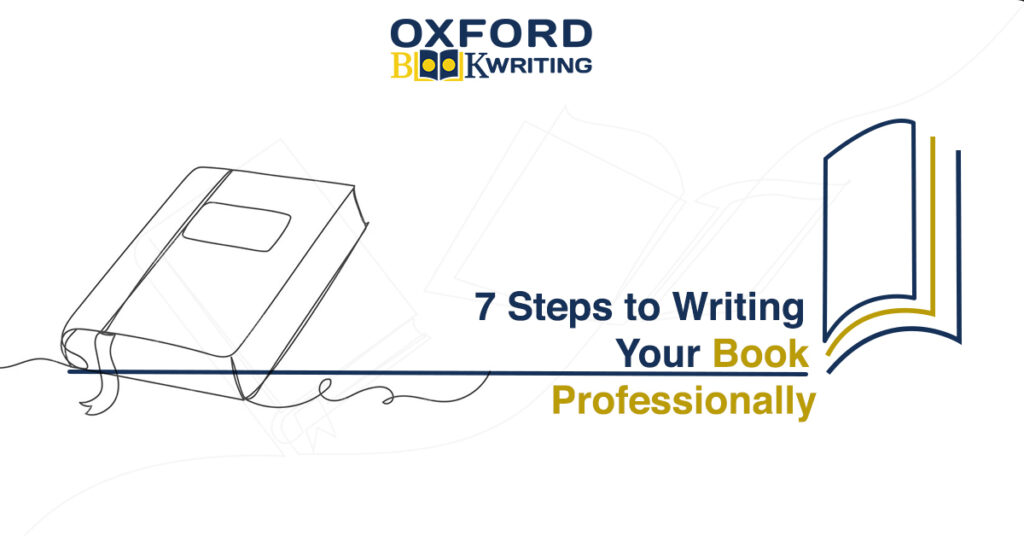A wise author once said that 99% of book writing is about having a crystal clear book idea. Only 1% of it is actual writing. Still, this 1% takes up the whole lives of aspiring authors who regret their inaction while lying on their deathbeds.
You don’t want to be one of those people who never gave themselves a chance to be a writer, do you? For many of us, publishing our book is a dream that we can die for. Now is the time to stop dying for our dream and start living for it.
But you are afraid. What will happen if you give your all to your project and never finish it? How would you feel if you started it one day only to come back to it after a year and remember that you didn’t go beyond the first sitting of working on your book? Surely, you need a system to see it through to completion. But how can you set up the system, take responsibility, and start writing? This blog post will help aspiring book writers write their first book.
Step # 1: Get Clear on Your Book Idea
You need to envision your complete book. Now, don’t take the advice too seriously. You cannot map out every single event or character of your book before putting pen to paper. No one expects you to do that. Instead, you would want to think about the tone of your book, its genre, and the target readers.
You will also want to decide the topic of your book. You see, when we imagine our story, we create narratives about multiple people and viewpoints. This can complicate storytelling and make the book difficult to follow and comprehend. Difficulty is the last thing your readers will want from a device they have for entertainment purposes, right? So, you would want to give them their dose of entertainment in the easiest-to-consume language and point of view.
That brings us to the selection of narrative and point of view. Some novels can do well with a single point of view. However, many plots require the deployment of more than one point of view. If you find that multiple viewpoints are demanded by the plot, you should keep the number as low as possible and choose one of these points of view as a prevalent and obvious choice.
Step # 2: Build Writing Habit
Now, let’s get to the most difficult part of book writing – writing that damn book. Most would-be authors presume themselves as authors because they have the idea without execution and the determination or discipline to sit down and write it.
What stops them from starting: is their fear that they will give up in the middle of manifesting their profound idea. That’s the major fear that holds back many great writers from becoming authors. They aren’t confident in themselves.
This fear and lack of confidence appear intimidating. Luckily, you can overcome this issue if you act strategically. All you have to do is to build a habit of writing every day. At this point, you don’t have to commit to writing the book. Only flex your writing muscle with some other smaller projects that may interest you. You can also use this time to outline your book or write out favorite scenes that you have imagined a hundred times till now.
At first, you may want to sit down for a small duration to make this routine less intimidating. You can start with 15-minute writing sessions and increase the duration gradually. Make sure that you only allocate as much time to your writing routine that you can consistently follow.
Also, setting up your writing space will help you a lot. You will have a dedicated space that you will reserve for your creative tasks. As you build the routine of sitting there regularly for writing, your brain will connect the space with creativity. In short, with time, you will experience an amazing connection with the space and your creative juices will start pumping sitting there.
Step # 3: Outline Your Book
If you lack confidence in your persistence, you aren’t alone. Many writers feel that way. But you must build this confidence slowly. Building your writing routine is a good starting point.
While you don’t have to work on your book in the initial days of your routine, if you still want to do that, you should start with preparing your book’s outline. Collect all your notes, build your characters, and define the world in which your story will be set. Many writers find it motivating to sketch their characters, but it’s not a necessary step. Still, you should be so sure about your characters and their appearance that you can see them in visions.
With all background information collected and processed, you should start planning your book structure. Note that although most authors want to stick to their first outline for their books, it’s not a rule. You can choose to change your outline in later stages of writing.
Step # 4: Write
Once you have a complete outline, a working writing routine, and a dedicated space to write, start working on your book. Try not to break the routine or it will send your brain a signal that it’s okay to take breaks. Also, whether you need them or not, take planned breaks weekly. It will allow your mind to freshen up and take a step back from the book idea and its execution. Who knows this break can lead to new developments in the plot that make your book even more amazing!
Step # 5: Edit
Yup, that’s it. You have created your masterpiece. Now, it’s time to improve it and make it free of errors. Editing will help with that. Getting professional book editing services will help even more.
And that’s it.
Step # 6: Write Again
Actually, that’s not it. You still have to write. Editing is not a one-man task. You need help. More importantly, you need fellow writers and relevant readers to read your book and comment on it. Do they like it? How would they suggest to improve it?
If you are lucky, you have to do one more round of writing. Most authors have to go through more than three drafts to feel satisfied with their work. Writing a book takes time, and first draft writing is only a fraction of the time required to write a book from concept to final draft.
Step # 7: Publish
Once you have gone through as many revisions as were required to satisfy you, your editor, and your beta reader, your book is ready for publishing. Publishing may appear a small task, but it isn’t. More than just formatting your book, selecting a cover page, and deciding on a publishing channel, you need to decide your marketing strategy.
Publishing always comes with a need for marketing and you will want to ensure that your book reaches more people and hits the best sellers’ list. Developing an adequate book marketing strategy and following through is crucial in ensuring your book gets the exposure it deserves.
End Note:
Are you thinking of writing your book but don’t find enough time to do so? Sometimes, you blame time constraints for your inactions. At other times, you simply don’t feel motivated enough to reach for it. Many people fail to work on their books simply because they have lost confidence in their skills or the chances of success of their book.
Whatever your reasons for procrastinating on your book, this blog post discovers proven strategies to overcome these reasons and get to work. If you still feel lost, don’t hesitate to hire book writing services. It’s better than giving up on your dream.



